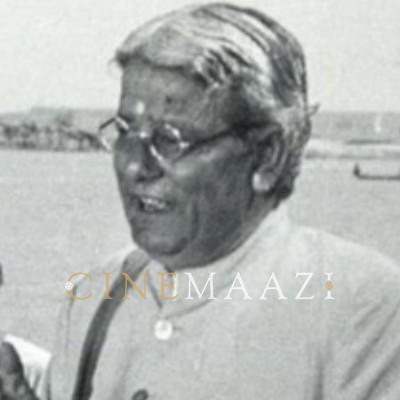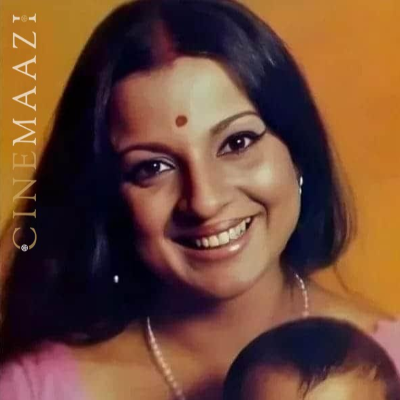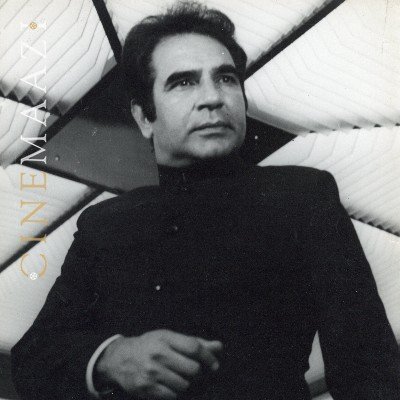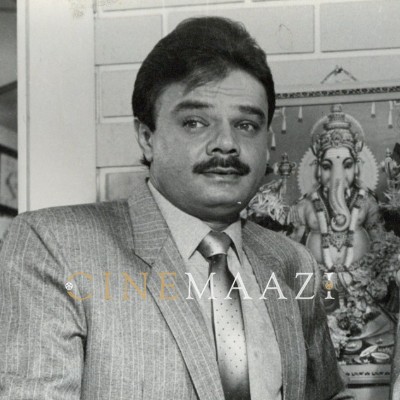Shaji N Karun

Subscribe to read full article
This section is for paid subscribers only. Our subscription is only $37/- for one full year.
You get unlimited access to all paid section and features on the website with this subscription.
Not ready for a full subscription?
You can access this article for $2 , and have it saved to your account for one year.
- Born: 1 January 1952 (Kollam, Kerala)
- Primary Cinema: Malayalam
- Parents: Chandramati and N Karunakaran
- Spouse: Anasuya Warrier (m. 1975)
- Grand Children: Appu Karun, Karun Anil
Prominent National award-winning Indian film director and cinematographer, Shaji N Karun is known for critically acclaimed films such as Piravi (1989), Swaham (1994), Vanaprastham (1999) and Kutty Srank (2009). He made an enormous impact with his very first film - Piravi winning the Caméra d'Or - Mention d'honneur at the 1989 Cannes film festival. He has made approximately a dozen short films and documentaries. The premiere chairman of the Kerala State Chalachitra Academy - the first academy for film and TV in India, he was also the executive chairman of the international film festival of Kerala between 1998 and 2001. Besides filmmaking, he has been active as a juror on the panels of several international film festivals besides participating in governmental and academic arenas. He has also worked on policy decisions, serving in various advisory capacities in activities conducted by the government of India as well as Kerala, including the 20th International film festival of Kerala which was held in 2015 under his guidance, and was considered one of the best held thus far by the Press as well as film lovers. Among the honours he has been decorated with are the Padma Shri in 2011, the Ordre des Arts et des Lettres (1999), France, the first Sir Charles Chaplin Award to commemorate the centenary of Chaplin's birth (1989) Edinburgh Film Festival – United Kingdom, and a special mention - Camera d'Or, Cannes film festival, and the Eastman Kodak award for excellence (cinematography).
Born Shaji Neelakantan Karunakaran on New Year's Day, 1952 in present-day Kollam district in the former state of Travancore state (now Kerala), he was the eldest son of Chandramati and N Karunakaran. In 1963, the family moved to the state capital, Thiruvananthapuram. Completing his schooling at Palkulangara H.S, he earned a bachelor's degree from University College, Thiruvananthapuram. He even got admission to a medical college in Trivandrum, to do his MBBS; however, in 1971 he enrolled at the Film and Television Institute of India, where he earned his diploma in cinematography. His diploma film Genesis (1974), directed by Rahul Dasgupta, garnered several awards, and he also won the President's medal on graduation in 1975.
A brief stint in the city of Madras, and he returned to Thiruvananthapuram in 1976. Here, he was appointed as a film officer in the state Film Development Corporation, which was newly formed at the time. This was the time that his association with the legendary Malayalam filmmaker G Aravindan began. He went on to work with other notable directors like K G George and M T Vasudevan Nair as a cinematographer.
As a cinematographer, he won the Eastman Kodak award for excellence, Hawaii international film festival (1989), the National Film award for Aravindan’s Thampu in 1979, as well as awards from the government of Kerala for Kanchana Sita (1977), Esthappan (1981), and Onnumuthal Poojayam Vare (1986).
Capturing moments, not just images, he would reveal, “I am influenced by Aravindan, with whom I’ve worked with on several projects. His films say a lot through silence instead of dialogue, so what you see on screen aren’t just pretty pictures. They are the primary means of communication.”
However, his real desire was to make films from his own point of view. He would later maintain, “A filmmaker is like a doctor. But who is a doctor? He is one who knows about the whole of the human body, and who then goes on to a specialisation. Similarly, a filmmaker has to have knowledge about all of cinema, whether he wants to end up as cinematographer or director. Even as a cinematographer, I would look at something the director did and ask myself how I would do it if I were in his position. All this training helped me.”
After around 15 years of learning and preparation, in 1988, he made his directorial debut with the Malayalam film Piravi - “It took me that long to get ready, to convince myself that I could direct,” he would explain. Procuring a loan from the NFDC, he made the film, which, in a stroke of luck, was picked up by Cannes. Released across Europe, it proved a big success. It was hailed as probably the most stunning feature film debut in the country since Satyajit Ray burst on the scene with Pather Panchali in 1955. It earned not just the prestigious Caméra d'Or - Mention d'honneur at the Cannes film festival, but also the Silver Leopard at the Locarno international film festival. Revolving around the grief of a father who loses his son, Trigon film.org points out that with the film, Karun “denounces not only the corruption that exists within the establishment, but also focuses on the impotence of the individual in the face of an oppressive system.” The film depicts the ageing father waiting at the bus stop for his son Raghu, a student at the University of Trivandrum, who is expected home for the holidays. “The elderly Chakyar’s eager happiness slowly turns to disappointment and then anxiety. After several days with no news of Raghu, his family learns that the police have arrested him for singing revolutionary songs at the university’s annual fête. Chakyar goes to the capital, hoping to find support from the minister of internal affairs, and is soon joined by his daughter, who does not, however, share his optimism. When it becomes clear that Raghu cannot escape a jail sentence, the old man gradually loses his reason.” Karun himself would later share, “It’s about a father waiting for his son. The son is, in a sense, the main character, but he’s not shown at all. Instead, I tried to tell the story with the help of visuals – the rain, the river, the storms, the skies…”
Continuing with the theme of grief, his next film, Swaham (1994) was set in a remote village of Kerala, where a woman struggles to support her family after her beloved husband’s untimely demise. Met with widespread critical acclaim, the film won the Bronze Rosa Camuna at the Bergamo Film Meeting (Italy), the Silver Lotus - special jury award for director, the Kerala state film award, and was also nominated for the Palme d'Or at the Cannes film festival.
His Indo-French directorial Vaanaprastham (1999), a psychological drama period film, depicted the illicit relationship between a famous Kathakali dancer Kunhikuttan and Subhadra, a young woman from an upper caste family, which produces an illegitimate child. The relationship leads to his own identity crisis, as Subhadra falls in love with his character rather than himself. It featured Mohanlal and Suhasini Manirathnam in the lead roles. Besides winning three National Film awards, it also bagged the special prize of the jury at the Istanbul international film festival, and the FIPRESCI prize at the Mumbai international film festival.
Nishad, made in Hindi, which he directed in 2002, premiered in the Fukuoka international film festival held in Japan, and was featured at more than ten other international film festivals, including the Indian panorama at the international film festival of India. A drama film, it revolved around how a call mistakenly made by a young boy who is trying to reach his mother, upsets the peace of a couple.
In 2009, he directed Kutty Srank: The Sailor of Hearts with Mammootty playing the lead role. The film revolved around conflicting accounts that emerge when three women come forward, each claiming to be the widow of a dead sailor. The film won a clutch of awards including the National film award for best feature film.
His other directorials include the drama The Voiding Soul (original title – Swapaanam) (2014), and She (original title – Olu) (2018), which revolved around Vasu, a struggling painter, who meets Maya, a mysterious gypsy girl, who inspires him to create soulful paintings, even as the two forge a life-changing connection. He also directed the short films Lady of the Landing (1974), and Shams Vision (1999).
Known for his detailed and time-consuming preparation for his feature films, Karun has pointed out that he has never considered cinema as a source of livelihood. “For that, I just go and photograph someone else’s movies. Or I make short films, like the one about a blind man who did embroidery. For me, cinema is a craft. So I wait until I can make the movies I want to.” Incidentally, Karun has no issues with mainstream cinema either, pointing out that it is “entertainment, and human beings need entertainment.”
As a filmmaker, he reveals that he is driven towards stories that explain relationships between people. “That’s the greatest story ever told, and also the toughest. What draws men and women to each other? What makes them repel each other? I’m drawn towards areas of personal conflict between people.”
On the personal front, on 1 January 1975, he married Anasuya Warrier, daughter of P K R Warrier, who was his neighbour in Trivandrum. The couple has two children - Appu Karun and Karun Anil.
References
https://baradwajrangan.wordpress.com/2006/04/23/interview-shaji-karun/
https://openthemagazine.com/cinema/watch-out-for-tamil-films/
https://alchetron.com/Shaji-N-Karun
https://www.trigon-film.org/en/movies/Piravi
https://www.tcm.com/tcmdb/title/519476/swaham#overview
https://www.imdb.com/name/nm0440267/
Image courtesy:
https://www.youtube.com/watch?v=pNSIS8ihex4












.jpg)



